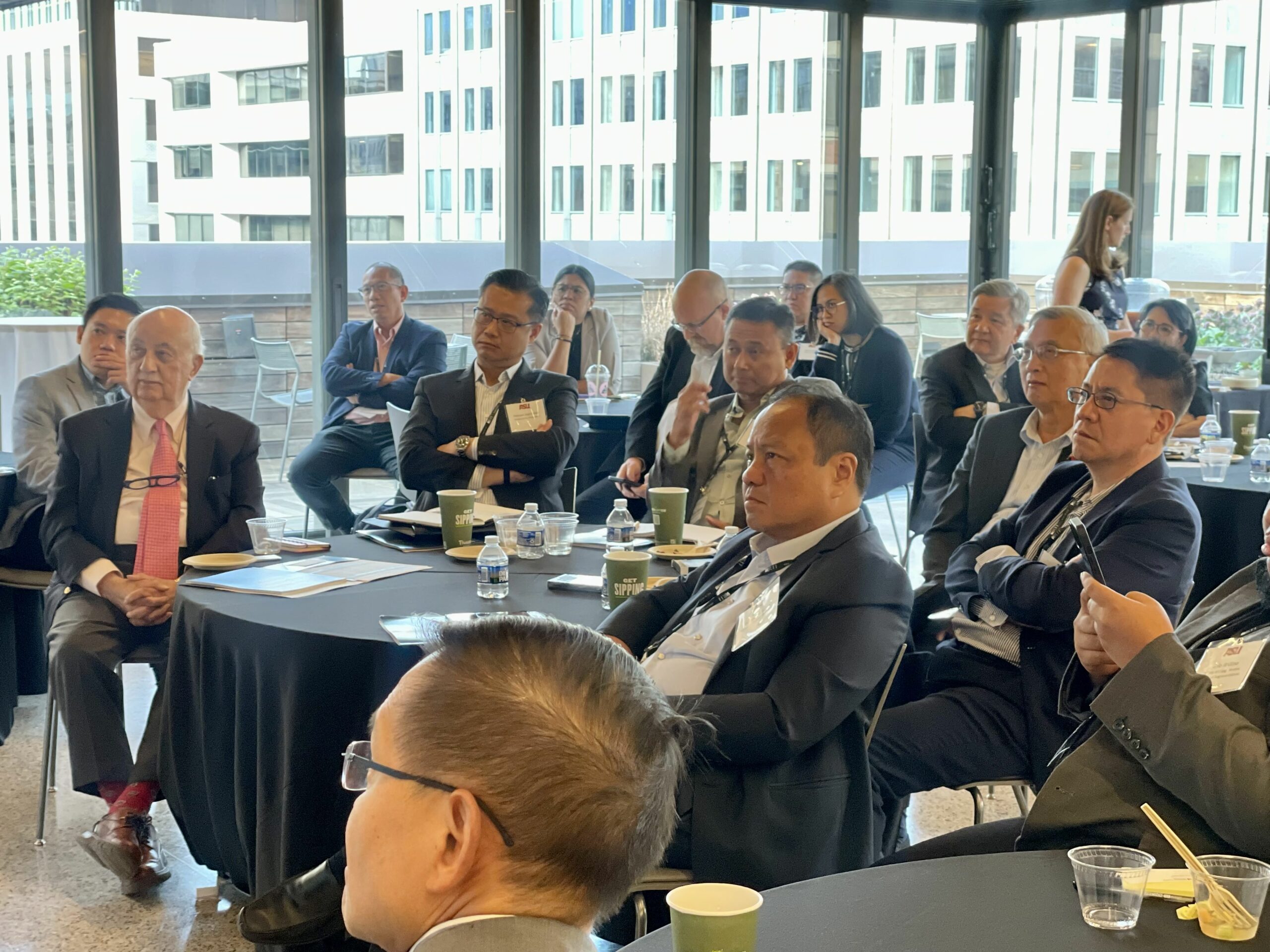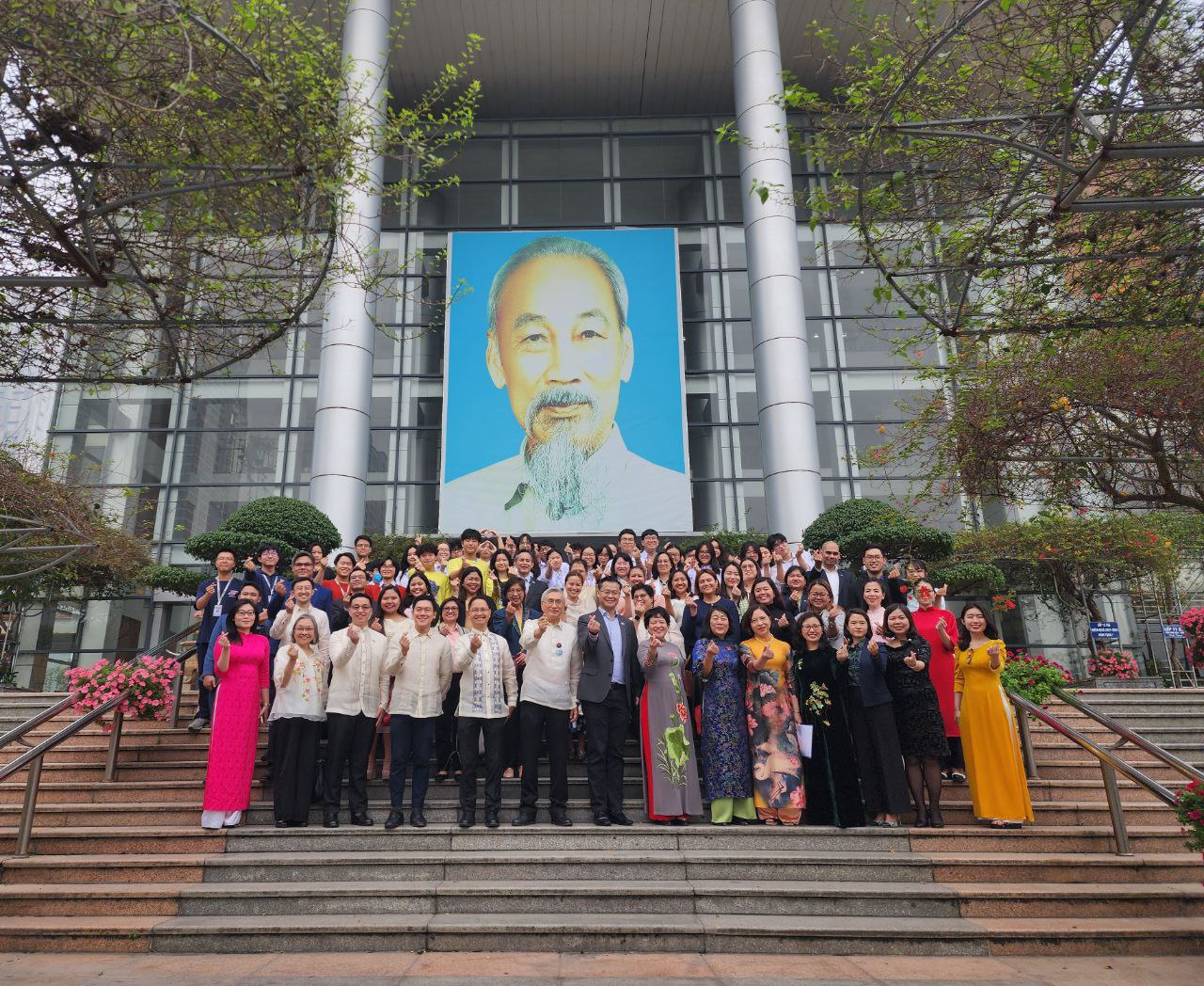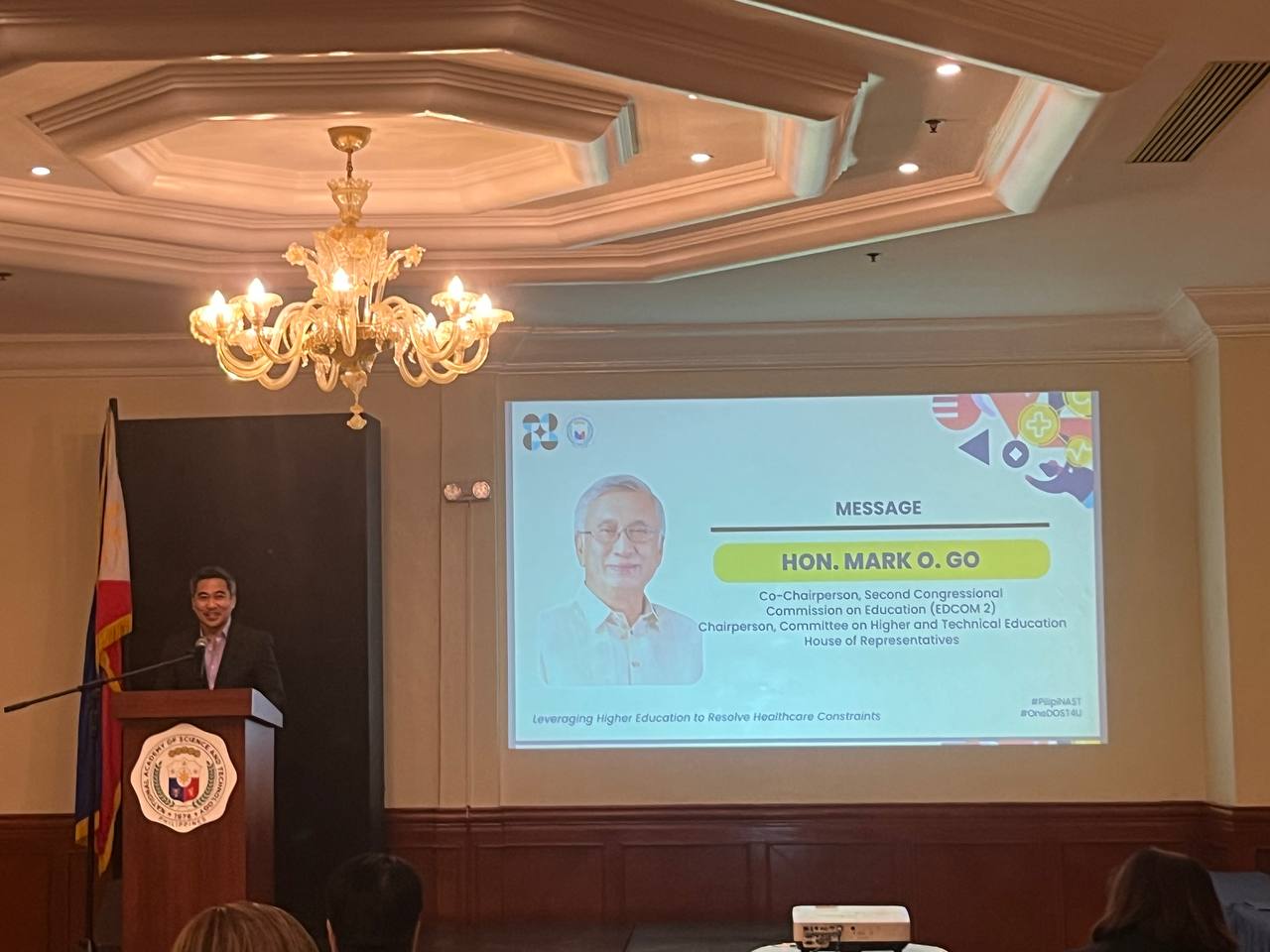The Second Congressional Commission on Education’s (EDCOM 2) recent study visit to Vietnam, conducted from March 21-24, 2024, gathered key insights on government spending, curriculum development, assessment, and how to approach education reform through a system approach.
During the trip, the Commission met with officials of the Ministry of Education and Training (MOET), visited and discussed with members of the National Assembly, and discussed with Filipino teachers who are currently based in Hanoi and nearby cities.
“Your education system has achieved what many thought impossible—outperforming many OECD countries in the Programme for International Student Assessment, despite the substantial difference in economic development, and education spending levels”, said Senator Win Gatchalian, EDCOM 2 Co-Chairperson, addressing officials from the Vietnam Ministry of Education and Training (MoET). “This is a clear indication that with the right policies, success is within reach”, he continued.
Reading literacy was also a key issue that the Commission looked into in Vietnam. While the GDP of Vietnam and the Philippines are comparable- 408.8 B and 404.3 B as of 2022, respectively – the learning poverty rate could not be more different. The Philippines’ learning poverty rate is at 90.9%, while Vietnam’s is at a mere 18.1% in 2022.
The Commission found several factors that contributed to Vietnam’s strong showing in reading literacy in international assessments, including significant investments in education, decentralization, prioritizing early childhood care and nutrition, and giving teachers necessary support.
Sustained, targeted investment in education
In particular, the 2019 Law on Education mandated the Vietnamese government to invest 20% of the total state budget for education and training. Further, Vietnam spends more on their students, per capita, at the primary level. In 2022, Vietnam spent USD 745.8 per student in Grades 1 to 3, while the Philippines spent only an average of USD 328.
As cited in the EDCOM 2 Year One Report, while annual spending on education per student in the Philippines has nearly tripled, from Php 7,876 to Php 20,834 between 2010 to 2024, data shows that the bulk of the additional resources went to higher education.
“While we have gone a long way in increasing education investments, Vietnam’s experience shows us the importance of which segment of the education system resources are allocated— and evidently, we need to prioritize the primary years, which serve as the foundation of further learning”, EDCOM 2 Executive Director Dr. Karol Mark Yee said.
The Commission also noted that Vietnam was deliberate in reforming early childhood education and primary education first before investing heavily in higher education – a crucial factor in their successful reform program.
Prioritizing early childhood education and nutrition
Apart from primary education, the Vietnamese government has also ramped up its investments in early childhood care and education, as well as nutrition. Nursery-level programs cater to children as early as 3 months of age, up to to 3 years, focusing on holistic development encompassing physical, cognitive, linguistic, emotional-social, and aesthetic domains.
Pre-schools, attended by children aged 3-6, prepare students for primary school by emphasizing these developmental areas. In 2010, the government established a development framework for 5-year-old children, comprising 120 indicators.
“During the visit, we learned that the Vietnamese government caters to children as early as 3 months old, combining both early stimulation and education, as well as nutrition. Where, daycare workers and teachers are trained to care for children holistically— an aspect that we still struggle in doing in our child development centers,” said Executive Director Yee.
Decentralization a key factor
The Commission also found that management of education in Vietnam depends heavily on the provincial government. While policies are decided at the national level through the MOET, the People’s Committees at the provincial level oversee schools’ compliance with education laws, manage resources in public schools, implement educational programs, and ensure adherence to policies to enhance education quality and scale, with accountability for outcomes.
Other key elements that the Commission found during the Vietnam study visit were strong support for teachers, a robust framework for assessment and learning measurement, effective curriculum development and implementation, equity in education financing, and parental support and household share in education programs.
“Vietnam was able to identify important drivers of their education system and how these parts work together and contribute to their national development goals”, EDCOM 2 Co-Chair Rep. Mark Go said, observing crucial priorities that the Vietnamese government identified to implement education reforms.
EDCOM 2 Commissioner Rep. Jose Francisco Benitez lauded Vietnam’s success and strong commitment to education. “Vietnam’s experience can serve as a guide for the Philippines in pursuing necessary reforms to strengthen our education system,” Rep. Benitez said.




